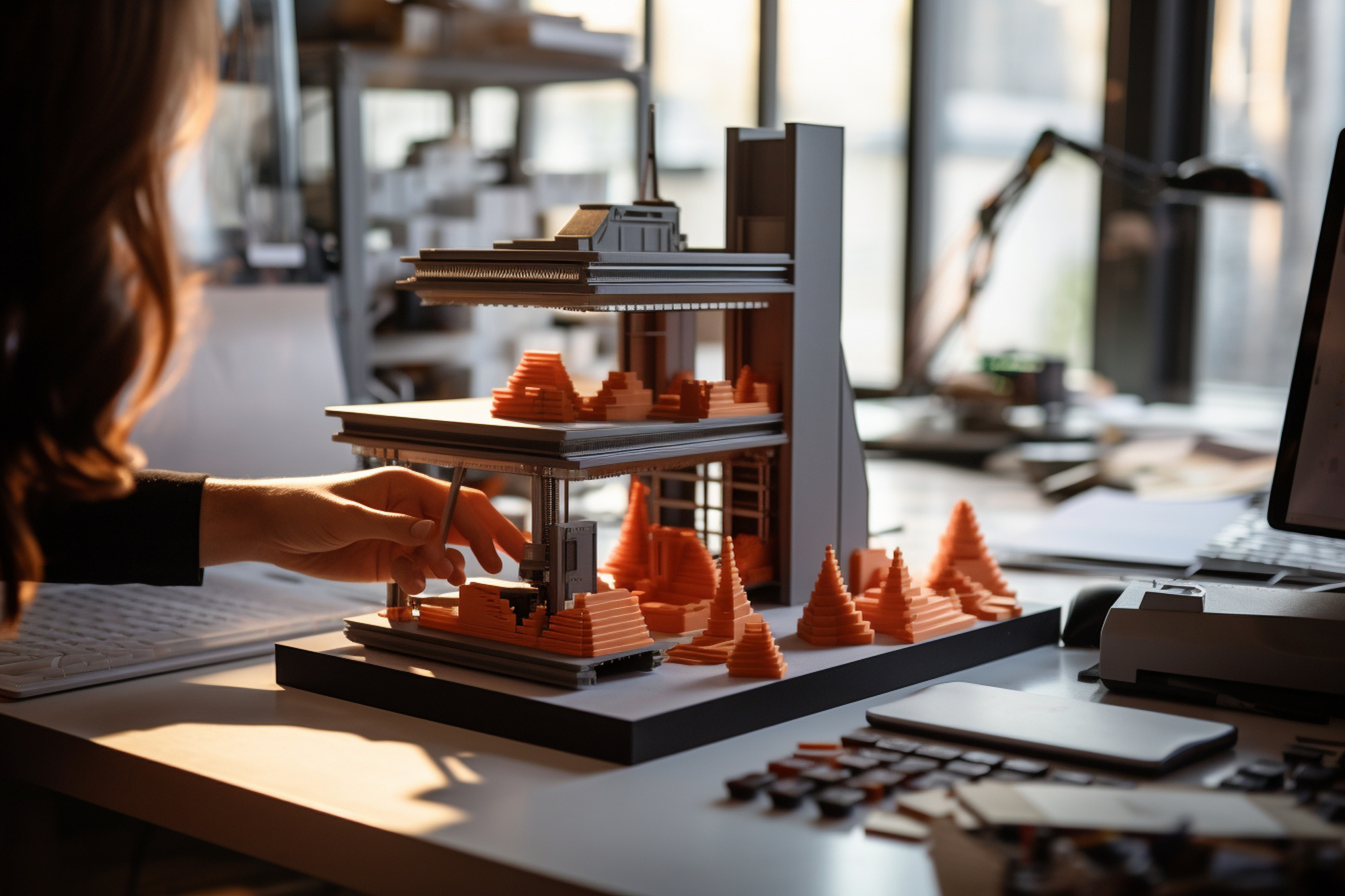Adopting these optimization strategies helps enhance the quality of your 3D prints while streamlining your workflow. Moreover, a proactive approach to addressing potential printing issues can lead to a smoother printing experience.
Post-processing and finishing are critical steps in transforming your 3D-printed items from raw outputs to refined, final products. These techniques help improve aesthetic appeal and functionality, addressing surface imperfections and adding required textures or colors.
- Sanding: Utilize varying grits of sandpaper to smooth out layer lines and surface bumps, creating a more polished appearance.
- Priming and Painting: Apply primer to prepare the surface for painting, then add color and texture with paint to bring your design to life and protect it from wear.
- Detail Refinement: For detailed models, employ fine tools like precision files or rotary tools to clean up and perfect small features.
- Sealing: Protect and enhance your print by applying clear coats or sealants, which can increase durability and resistance to environmental factors.
With these post-processing techniques, you can improve your 3D-printed items, turning them into polished and professional-looking pieces. However, while refining your prints, don’t forget to maintain safety by working in a well-ventilated area and wearing the right protective gear.
Integrating 3D printing into your existing creative workflow can unlock new levels of efficiency and productivity. You can use this technology for rapid prototyping and iterative design processes, allowing you to quickly visualize and refine your ideas before committing to final production.
Additionally, make the most of the opportunities for creative exploration that 3D printing offers. Experiment with unique shapes, textures, and assemblies that would be challenging or impossible to achieve through traditional manufacturing methods. By incorporating 3D printing into your routine, you can streamline your processes while expanding the boundaries of your creative expression.
Wrapping Up
3D printing presents a balanced approach to realizing intricate designs and ideas with precision and ingenuity. By becoming well-versed in 3D printing, from preparation to the final post-processing, you can enhance your ability to execute projects with greater detail and artistic expression.
As 3D printing continues to evolve, its potential for transforming the creative landscape is virtually limitless. That said, embrace this technology, experiment with its capabilities, and witness firsthand how it can elevate your projects, one layer at a time.


Recent Comments